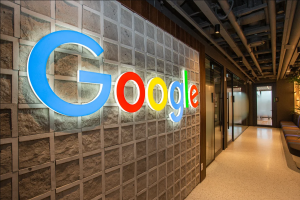What Do You Mean By Mobile Internet?
A blog post over at ReadWriteWeb and a study by UK-based Essential Research say that “only 76% don’t access the mobile Internet.” Mike Melanson at RWW calls this “combating the hype.”
The problem is not in the data – I believe that when you ask most people if they surf the web primarily on their handheld or their computer, they’ll say hands down every time that it’s their computer that they use. The real question is two-fold: what do you mean by handheld, and what do you mean by “mobile Internet?”
According to Essential Research:
60% of UK mobile users claim to not even own a mobile with internet access and just 30% of these are interested in getting one. The picture gets worse for mobile operators with the revelation that even for upwardly mobile internet users and owners of smartphones, one third (31%) have never used their phone to connect to the internet, a quarter (24%) use it less than once a week and 8% tried it but don’t intend to do so again.
Reading the breakdown of the numbers, it’s clear that Essential Research doesn’t have a handle on what I’m driving at with these pointed questions (whereas you, loyal readers, know exactly what I’m talking about since you’ve heard my talk about disruption and convergence ad nauseum since the beginning of the year).
For those in the cheap seats and those at Essential Research, I’ll break it down again.
What is the Mobile Internet?
Is SMS considered the mobile Internet? It should be. SMS is, by and large, carrier agnostic, and is interchangeable with email on most mobile devices. What about GPS Maps functionality? Many map devices and apps end up pulling data not just from a local storage device for all the updated geography, but from the Internet via a public API.
![]() How about mobile social networks with their own third party apps (commonly used for Twitter and Facebook access)? Do users consider that the Internet? Does Essential Research? For that matter, what about the original social network – email? How about push-to-talk features? Typically push-to-talk on networks that aren’t Nextel are voice data files encoded over the SMS network.
How about mobile social networks with their own third party apps (commonly used for Twitter and Facebook access)? Do users consider that the Internet? Does Essential Research? For that matter, what about the original social network – email? How about push-to-talk features? Typically push-to-talk on networks that aren’t Nextel are voice data files encoded over the SMS network.
How about 4G network users, where voice packets get encoded into data?
You see where I’m going with all this? On the monetizable side, and on the non-monetizable side, Internet usage is pervasive on most mobile devices we consider traditionally to be phones (smart or not).
What is a Mobile Device?
![]() I’ve brought this up a few times, but I’m going to keep drumming it up until I’m laughed at roundly or it catches on: the life-cycle for the smartphone is almost at an end. We’re starting to see the rise of the 4G and other types of WiMax networks, finally. The prices for usage on these networks are quite attractive compared to typical mobile connectivity providers, and are device agnostic.
I’ve brought this up a few times, but I’m going to keep drumming it up until I’m laughed at roundly or it catches on: the life-cycle for the smartphone is almost at an end. We’re starting to see the rise of the 4G and other types of WiMax networks, finally. The prices for usage on these networks are quite attractive compared to typical mobile connectivity providers, and are device agnostic.
It makes the options for mobile voice connectivity almost endless. We could see a return to the days when ultra-cheap Palm style devices were commonplace, or you might just see people taking advantage of just-as-cheaply-priced netbooks running $40 FemtoJacks or just plain Skype connections. Why pay $120 a month for a six inch screen and crippled connection when you can have a mini-laptop, voice and broadband data for $25 a month?
That’s the future. What about now? We see a whole host of devices meant to exclusively access the mobile Internet in a transparent manner (like Kindles, Peeks, GPS devices, FloTVs). Granted, many of the devices in this genre aren’t available in the UK (where this survey took place), but I can’t expect that Britain is a gadget wasteland.
My point is that the lines are blurring as to where traditional connectivity and interconnected communication begin and end. To say that there’s only 24% of the population that utilizes the mobile Internet is disingenuous at best and ignorant at worst.
A message from John Furrier, co-founder of SiliconANGLE:
Your vote of support is important to us and it helps us keep the content FREE.
One click below supports our mission to provide free, deep, and relevant content.
Join our community on YouTube
Join the community that includes more than 15,000 #CubeAlumni experts, including Amazon.com CEO Andy Jassy, Dell Technologies founder and CEO Michael Dell, Intel CEO Pat Gelsinger, and many more luminaries and experts.
THANK YOU













